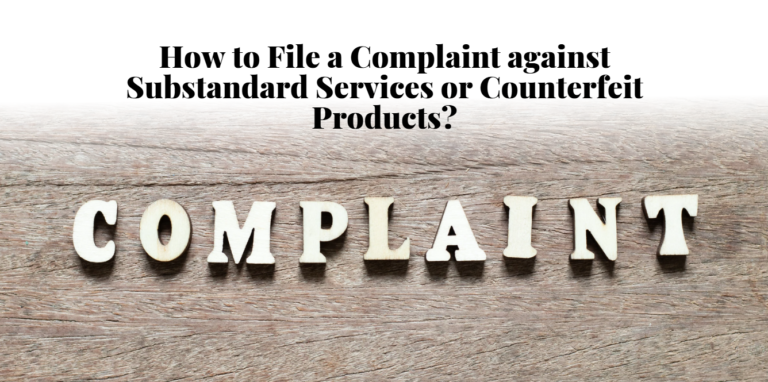Sexual assault is also a horrible crime that victimizes millions of people worldwide. Laws have been enacted to protect the victim and punish the offender, but prevention and awareness are also very important. In this blog, we will be examining the legal scenario, the victim’s rights, and how the individual and society at large can prevent such crimes.
Knowing Rape and Sexual Harassment
Rape refers to a violent crime in which one is forced to have sexual intercourse against their will. Rape is a violation of human rights and dignity, leading to long-term physical and psychological injuries to victims. Consent is of paramount significance to ascertain whether or not a specific act would constitute rape in the majority of juridical schools. If he is coercing, forcing, or incapable of giving consent by virtue of age, alcohol, or mental incapacity, then it is rape.
Sexual harassment, however, includes unwelcome sexual advances, sexual favor requests, and other physical or verbal sexual behavior. It can take place anywhere—schools, workplaces, public places, or even the internet. It creates an intimidating, hostile, or offensive environment, rendering victims unsafe and vulnerable. Harassment, even without the use of physical force, can equally damage as much.
Laws Against Rape and Sexual Harassment
Governments across the globe have strong legislation to prevent and punish sexual violence. The legislation varies from nation to nation, but they aim for justice to be served on the victims and to punish the offenders severely.

1. Criminal Laws
Rape is considered a grave criminal offense, and most legal systems impose severe punishments on perpetrators. Depending on the jurisdiction, the penalties may include long-term imprisonment, life sentences, or even the death penalty in extreme cases. Some countries have also introduced chemical castration as a legal punishment for rapists.
Sexual harassment laws also exist to protect individuals from inappropriate behavior. These laws cover workplace harassment, public harassment, and online harassment. Many governments have established legal frameworks that make it easier for victims to report such incidents and seek justice. In some cases, fines and imprisonment are imposed on harassers.
2. Workplace and Educational Protections
To create safe environments, governments have introduced workplace harassment laws that require employers to take proactive measures against sexual harassment. Companies must have clear policies, complaint mechanisms, and awareness programs to ensure a harassment-free workplace. Failure to comply with these laws can result in penalties, lawsuits, and reputational damage for organizations.
Similarly, educational institutions have legal obligations to protect students from sexual harassment and abuse. Schools and universities must have strict anti-harassment policies, conduct awareness programs, and take immediate action against complaints. Ensuring a safe educational environment is crucial for students’ well-being and academic success.
3. Rights of Victims
Victims of sexual violence have several legal rights designed to support them through the justice process and recovery. Some of these rights include:
- Right to Report: Victims have the legal right to file complaints with law enforcement authorities without fear of retaliation.
- Legal Protection: Many countries provide confidentiality, legal aid, and safe shelters for victims to protect them from further harm.
- Medical and Psychological Support: Victims are entitled to medical examinations, counseling, and psychological support to help them recover from trauma.
- Right to Compensation: In some jurisdictions, victims can seek financial compensation from offenders or government funds to cover medical expenses and emotional distress.

Steps to Prevent Sexual Violence
While laws are essential for punishing offenders, preventing sexual violence requires a collective effort from individuals, communities, and institutions. Here are some key steps that can help prevent rape and sexual harassment.
1. Educating Society
Education is one of the most powerful tools in preventing sexual violence. Schools, families, and communities should educate children and young adults about consent, boundaries, and respect in relationships. Understanding these concepts from an early age helps create a culture of mutual respect and discourages harmful behavior.
Additionally, public awareness campaigns play a crucial role in educating people about the impact of sexual violence and how to prevent it. Governments and non-profit organizations should actively promote awareness through media, workshops, and community programs.
2. Strengthening Law Enforcement
Law enforcement agencies must take sexual violence cases seriously and ensure that victims receive the justice they deserve. Police officers should be trained to handle sexual assault cases with sensitivity and professionalism. Fast-tracking sexual violence cases in the judicial system can also help prevent delays that discourage victims from seeking justice.
Furthermore, forensic evidence collection and preservation must be improved to strengthen cases against offenders. DNA testing, medical examinations, and witness testimonies should be used effectively to support victims’ claims and secure convictions.
3. Encouraging Victims to Speak Up
Many victims of sexual violence do not report their experiences due to fear, shame, or societal pressure. Creating a supportive environment where victims feel safe to come forward is essential. Governments, NGOs, and community leaders should encourage victims to report incidents and assure them that they will be protected.
Helplines, support groups, and crisis centers should be established to provide immediate assistance to victims. Social media and digital platforms can also be used to amplify victims’ voices and connect them with legal and psychological support.
4. Holding Offenders Accountable
Strict legal action against offenders is crucial to deterring future crimes. Governments should ensure that perpetrators are punished appropriately and that there are no loopholes in the legal system that allow them to escape justice.
Public figures, celebrities, and influencers should use their platforms to speak against sexual violence and promote a culture of accountability. Naming and shaming offenders, when done responsibly and legally, can also help raise awareness and prevent further crimes.
5. Creating Safe Public Spaces
Urban planning and security measures can play a significant role in preventing sexual harassment in public places. Installing streetlights, surveillance cameras, and increasing police presence in high-risk areas can help deter offenders.
Public transportation systems should also have security measures in place, such as panic buttons, CCTV cameras, and female-only compartments. Creating safer public spaces ensures that people, especially women and children, can move freely without fear.
6. Changing Societal Attitudes
Sexual violence is often rooted in deep-seated cultural norms and gender stereotypes. Challenging and changing these attitudes is crucial to ending rape and harassment. Society must reject victim-blaming and instead focus on holding offenders accountable.
Parents and teachers should teach boys and young men about consent and respecting women’s rights. Media and entertainment industries should also portray gender relationships in a responsible and respectful manner to avoid reinforcing harmful stereotypes.
Final Thoughts
Rape and sexual harassment are serious crimes that require strong legal action and active prevention measures. While laws exist to punish offenders, true change can only happen when society works together to create a culture of respect, safety, and accountability.
Everyone has a role to play in making society safer. Governments must enforce strict laws, law enforcement must handle cases with sensitivity, and individuals must educate themselves and others about the importance of consent and respect.
If you or someone you know is a victim, seek legal help and support. Justice must be served, and together, we can work toward a world free of sexual violence.
By staying informed, speaking out, and supporting survivors, we can create a future where everyone feels safe and respected.













